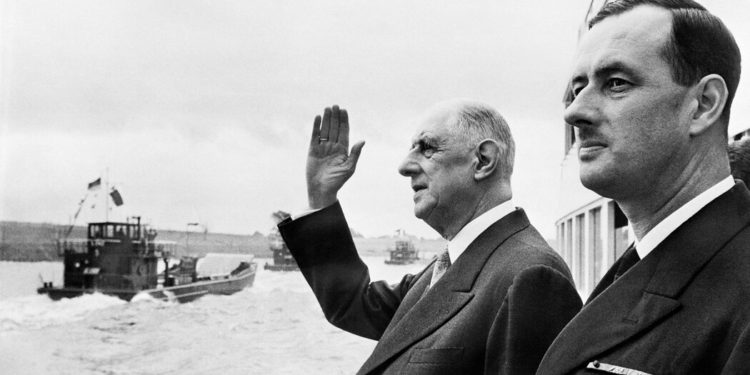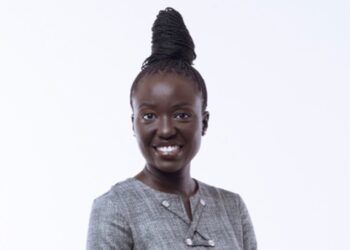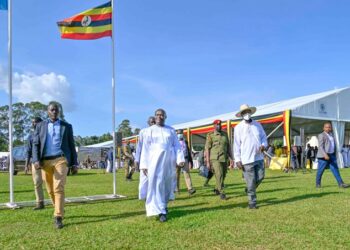By THE NEW YORK TIMES
Adm. Philippe de Gaulle, the oldest child of the French wartime leader and former president Charles de Gaulle, died on Wednesday in Paris. He was 102.
His death was confirmed by the Élysée Palace, the seat of the French presidency. His son Yves told the newspaper Le Figaro that he died “on the night of Tuesday to Wednesday” at the Institution Nationale des Invalides, the historic French veterans hospital in central Paris. The French Navy’s official Twitter account said Admiral de Gaulle died on Wednesday.
Admiral de Gaulle spent his life in the shadow of his father, France’s wartime savior and the founder of its Fifth Republic, despite his own illustrious record in the French Resistance and his distinguished military career afterward.
As a young naval officer in World War II, he fought in the English Channel and in the Atlantic; personally received the surrender of German troops in Paris occupying the Palais Bourbon, now the French Senate, in August 1944; “took part in all the battles of the Liberation,” the Elysée said; and was wounded six times.
He later became a naval pilot and fought in France’s wars in Indochina and Algeria. He ended his military service in 1982 as inspector general of the French Navy.
None of that career had been enough to earn any special warmth from the austere General de Gaulle. Philippe was nonetheless the careful custodian of his father’s memory, entrusted with the general’s papers and with the family home in northeastern France, at Colombey-les-Deux Églises. He unexpectedly revealed his father’s human side in a series of interviews that formed the book “De Gaulle, Mon Père,” which became a best seller in France in 2003.
In those interviews, Philippe de Gaulle demonstrated the family’s characteristic stoicism, maintained in his case over a lifetime as the son of a man for whom a thousand streets in France are named.
“From time to time, it has fallen to me to undergo various aggravations,” he coolly told the interviewer, Michel Tauriac.
He once recalled, of the father who called him “dear old boy” and whose aquiline nose and rectilinear figure he inherited, “After having hugged me, which he did rarely, he sent me away after 15 minutes.”
At the time of his father’s death, in 1970 at age 79, Philippe said, “He often gave me the impression that he would as willingly have sacrificed his son as himself, to serve his historic destiny.”
Philippe de Gaulle was born in Paris on Dec. 28, 1921. His father, a young Army captain at the time, had already acquired a reputation for bravery in World War I. His mother was Yvonne (Vendroux) de Gaulle, whose Northern French family had been prominent in shipbuilding and biscuit-making.
Philippe insisted on a military career, against his father’s wish that he become a diplomat — a rare instance of his thwarting the older man.
In June 1940, following the German invasion of France, he reached England with his mother and two sisters on the 19th, the day after his father’s historic appeal for resistance, broadcast on the BBC. After the war, his father decided not to award him the Resistance’s highest honor, the Compagnon de la Libération, explaining, “Everyone knows you were my first compagnon.”
After his career in the military was over, Admiral de Gaulle was elected senator from Paris in 1986 on a right-leaning party’s ticket headed by Maurice Couve de Murville, who had been his father’s prime minister after serving the collaborationist Vichy government during the war.
In addition to his son Yves, Admiral de Gaulle is survived by three other sons, Jean, Charles and Pierre. His wife, Henriette (de Montalembert) de Gaulle, died in 2014. His sister Anne died in 1948, and his sister Elisabeth died in 2013.
Interviewed by Le Figaro after he had reached 100, Mr. de Gaulle said, “I would have preferred to give some of my longevity to my father.”
Aurelien Breeden contributed reporting.







Discussion about this post